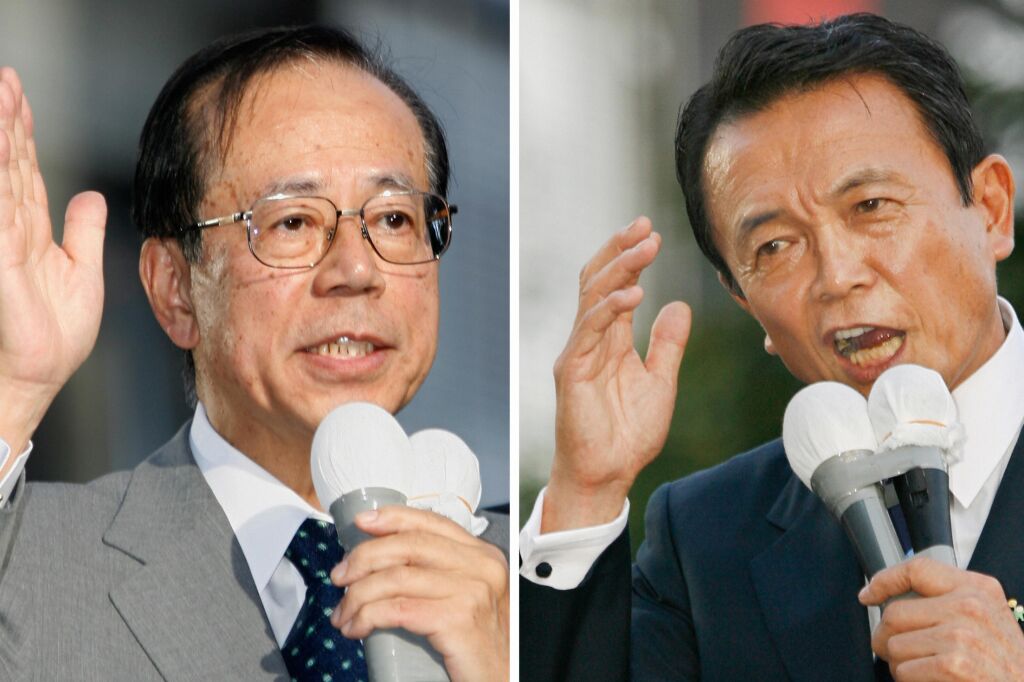
The Evolution of Japanese Politics
When Shinzo Abe resigned as Japan’s prime minister September 12, Japanese politics plunged from confusion into all-out chaos. Abe’s resignation was a timely sucker punch to the ruling Liberal Democratic Party (ldp). The reputation and influence of the ldp have been rupturing in recent months amid a series of scandals, cabinet reshuffles, and its loss of majority dominance within the upper house of the Diet, Japan’s parliament.
On September 23, ldp members sought to inject a measure of stability back into the party, as well as national politics, when they voted the moderate Yasuo Fukuda to replace Abe as leader of the ldp and the nation’s prime minister. This substitution of prime ministers might help stabilize the ldp, but it will do little to stem a broader movement gaining momentum within Japanese politics.
This movement, which flows swift among Japan’s increasingly popular opposition parties, seeks the restructuring of Japanese foreign policy in two important ways. First, it seeks to temper Tokyo’s strong and submissive relationship with Washington. Second, it seeks to improve Japan’s relations with its traditional Asian competitors, most notably China.
This two-pronged movement has gained enough traction that it will leave its mark on Japanese politics even with the pro-U.S. ldp maintaining power for the time being.
As prime minister, Fukuda will not personally choose to temper Tokyo’s relationship with Washington. To the contrary, as a born and bred ldp ideologue, he will strive to consolidate the relationship. However, this does not mean a moderation in the Japanese-American relationship will not occur. The political state of the ldp is gaunt, and the influence of the rival Democratic Party of Japan (dpj) so high, that it will become increasingly difficult for Fukuda and the ldp to maintain Japan’s full-fledged, unquestionable support of the United States.
This is not to say the dpj does not recognize the need for healthy relations with America. The dpj does not seek to sever relations, but rather to alter the relationship in ways that will harm American interests, particularly strategically and militarily.
Washington is aware of the ldp’s weakened position and is monitoring the situation closely—particularly since it could affect the naval support Japan is providing to U.S. military operations in Afghanistan. Domestic tension over Japan’s support of the U.S. Navy in the Indian Ocean has been intense in recent months, and is expected to rise leading up to November 1, the day the law sanctioning Japan’s naval mission will expire and its navy must return home. Citing officials in Japan, the International Herald Tribune reported that “the disarray inside the governing Liberal Democratic Party, as well as the newly empowered main opposition Democratic Party, will almost certainly interrupt, and perhaps end, the Japanese naval force’s six-year participation in the war in Afghanistan” (emphasis mine throughout). According to General Nakatani, a former Japanese defense minister, “It’s now 100 percent sure that our ships will have to come back at least once.”
Unless the ldp can muster the cohesion and momentum needed to overcome the Democratic Party’s staunch refusal to extend the law, the Japanese Navy will be forced to abandon its activities on the Indian Ocean. Beyond this potential loss, U.S. officials are worried the sentiment runs beyond Japan supporting the U.S. Navy on the Indian Ocean, and that dpj leaders could force further fracturing of the Japanese-American security and military relationship.
Fukuda will toe the ldp line when it comes to foreign policy with America, but he is prepared to rewrite his party’s historic approach to Japanese foreign policy with its regional competitors, particularly China and North Korea. Known as a foreign policy dove, Fukuda has “long emphasized the importance of building strong ties with China and the rest of Asia and represents a break from the nationalist Abe and his predecessor, Junichiro Koizumi.”
During a televised, head-to-head debate September 16 with Taro Aso, his only challenger for ldp leadership, Fukuda spent considerable time highlighting his goal of redirecting foreign policy in a manner that will improve Japan’s relationship with China, South Korea and North Korea. “China is now aiming at a free-market economy. They are making an effort,” he said. “We need to cooperate with them.” Later, in another sign of his dovish approach to the locals, he promised that as prime minister he would not visit the Yasukuni Shrine, which is generally viewed as a symbol of Japan’s past militarism and heavily criticized by Japan’s neighbors who were past victims of Japanese aggression.
Fukuda’s foreign-policy shift toward Asian states ripples beyond Beijing; he also seeks the softening of Japan’s hardline policy against North Korea. During his short campaign, he explained that Japan should follow the example of the United States and soften its stance toward Pyongyang, telling his people that Japan needs to “make conversation to some extent” and that Tokyo “must not close the road to talks.”
Ultimately, Fukuda’s plan is to promote the integration of Japan into the Asian community, not merely as the stoic presence it is now, and not as an instrument of the Oval Office, but rather as a vibrant regional power valued as a friend and ally.
So, even if Fukuda and the ldp retain ruling control of the Japanese government, the movement to temper Japan’s support of the United States and to enhance its own role within the region will continue.
The impact of this movement on America’s foreign policy will be significant. The more Fukuda is opposed and assaulted by opposition parties, the tougher it will be for him and his party to maintain its staunch military and strategic support of the United States.
In fact, if Fukuda grows weak enough, the dpj, led by the impressive Ichiro Ozawa, may well succeed in snatching control of the government away from him. Should that happen, Japan’s path away from the U.S. and toward its growing regional alliances will be decidedly more swift.
